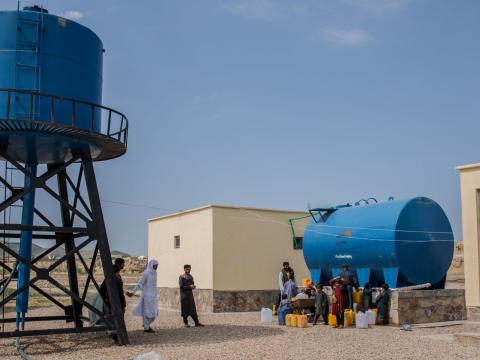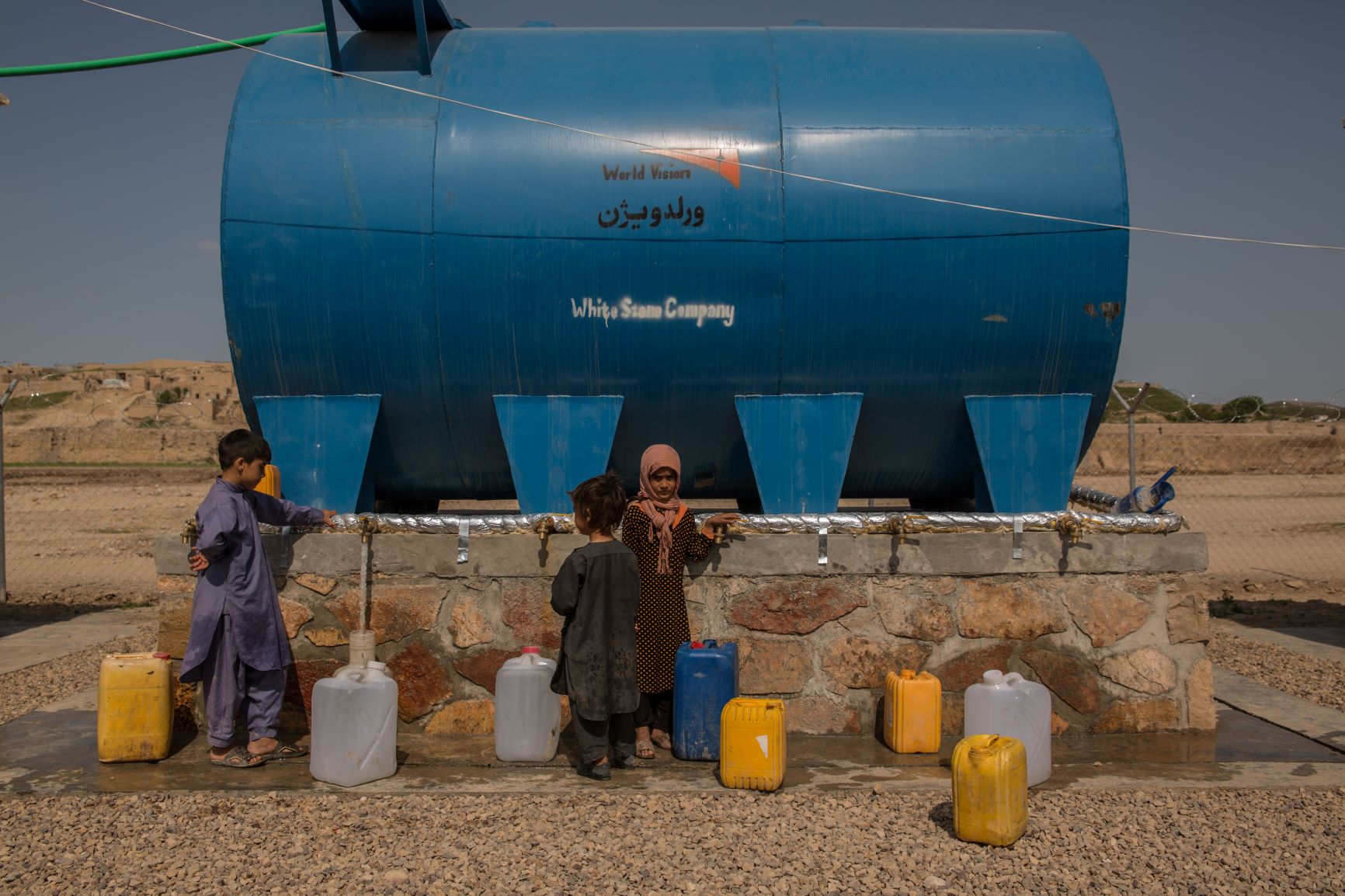The new hit in town? Clean water for all!

The news has spread fast and people from all directions venture out, jerrycans in hand or strapped to a donkey.
They are excited, curious even because the reverse osmosis (RO) water treatment unit is the new hit in Chahkaran village.
It’s essentially a solar-powered water purification system for 545 families living around the area. The system which has been funded by the Office of U.S. Foreign Disaster Assistance (OFDA) pumps salty groundwater from a 40-meter deep well, which is then filtered into drinking water through reverse osmosis - or in short, RO.
Priced at approximately $58,000, it’s one of the most cost-effective ways to provide mass water supplies. Each unit serves up to 573 households with their daily basic water needs. It’s been set up in Afghanistan’s Badghis province, far out west in a remote part of the country.
Just a few days prior, water in Chahkaran would be collected from a river, often dirty, contaminated by trash and faeces, introducing all kinds of water-borne diseases to the villagers.
“It got so bad that I ventured out into the bazaar to purchase water,” says Abdul Wariz, a 20-year-old who has now come to the RO unit.
“A 20 liter jerrycan cost me about 50 Afghani ($0.75) and it got very expensive for my family,” he explains, adding that he had to strap the water cans to a donkey for the long way home.
“We only pay 10 Afghani for the same amount of water here and the money goes towards keeping the unit running,” he says. Today he’s brought a wheelbarrow - it’s a much shorter way from his house to his new water point.
It’s early in the morning still, but the whole village seems to be trickling in, carrying all kinds of buckets and water canisters. The unit has just opened a week ago and people’s excitement is still visible. Six water taps provide clean water for everyone here.
“The quality of the water prior to treatment is bad, It’s high in sulphate and very salty. The system operates entirely on solar energy, making it self-sufficient,” explains water, sanitation and hygiene engineer Javid Nazari, who helped put the system in place.
Now handed over to a water management committee, the community is responsible for the maintenance and upkeep. “We’ve trained a cashier, team leader and technical staff and have given them the key to the unit,” Nazari says. The water taps, solar panels and reverse osmosis room are in a fenced in area right outside the village.
“We approached World Vision about our water situation,” explains Abdul Khalek, a 60-year-old water management committee member. “Oftentimes, children were responsible for the water collection and it could take them up to a couple of hours to ride to a well, fill up jerrycans and bring them back by donkey. Sometimes they had to miss school for it. We knew something needed to change.”

It’s exactly these children who gather at the RO unit this morning too. Some have come with their parents. Others have tagged along, curious to see the new highlight.
Six-year-old Arezu has a big smile on her face while fetching water. She’s come with her brother Abdul who is still busy loading the yellow jerrycans onto the wheelbarrow. Wearing an orange headscarf and a dark blue patterned dress, she says that she doesn’t usually help with the water. “It’s my brothers who go and they stay out a long time. I’m not allowed to join.”
In Chahkaran, the new system will change the routine of both women and young boys, usually responsible to collect water.
The blue tank, filled with clean water can be seen from afar, while the tank triumphs over the other buildings. From here, the untreated water flows into the reverse osmosis treatment room and is eventually pumped into a metal tank, hooked up to water taps.
“If anything breaks, I’m here to fix it,” says technician Khoda Dud, who was hired to take care of the system.
But right now, everything is working perfectly. There’s a colourful hustle and bustle around the taps as children, men and women queue up to fill their jerrycans. Their faces are excited; everyone wants to try and see. The RO unit really has become Chahkaran’s new attraction - but above all, it will bring health and clean water to the villagers.